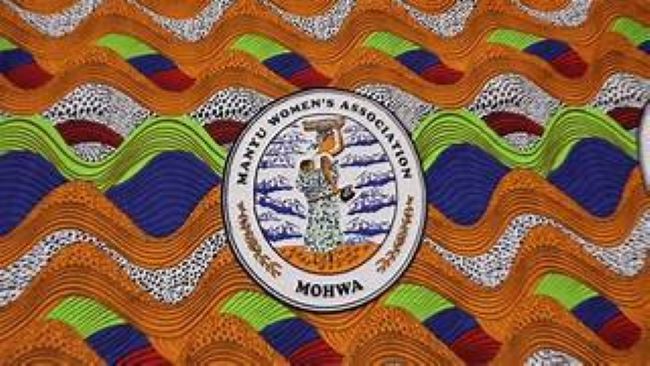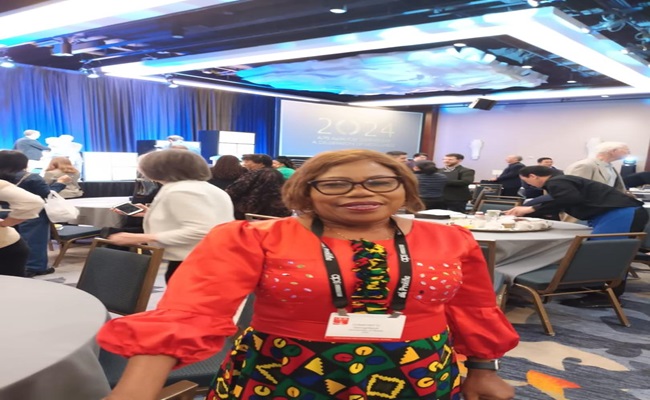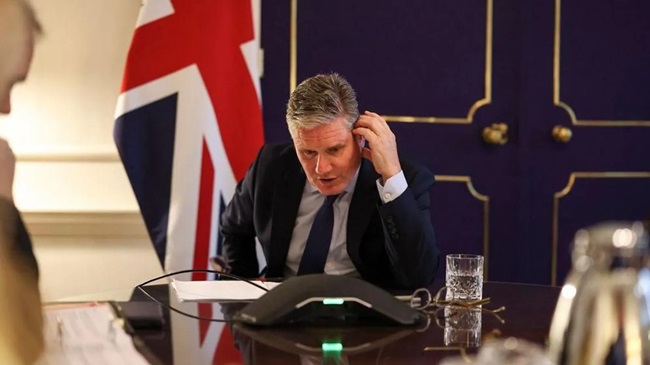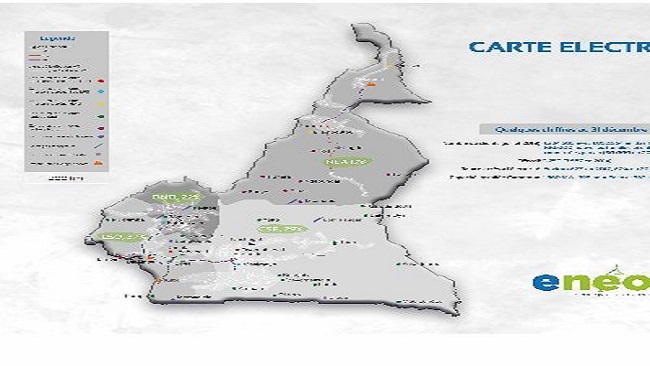14, August 2024
Indomitable Lions to lay former player Nguemo to rest this Saturday 0
Cameroon will hold a funeral this Saturday for late Landry Nguemo in Dschang.
The former Cameroon midfielder, who died in a road accident in Obala on Thursday 27 June, is now en route to the land of his ancestors.
Landry Nguemo’s memory has been hailed by several players deep within the Indomitable Lions and beyond, including the Minister of Sport and Physical Education.
Landry Nguemo was born on 28 November 1985 in Yaoundé. He played as a defensive midfielder.
He reportedly spent his childhood in Cameroon and was ferried to France through the Nantes system. He joined the AS Nancy-Lorraine youth academy at the age of 16 and passed his baccalauréat at 17 despite missing some exams for watching the 2002 African Cup of Nations on television, which his Cameroon team won. He turned professional at the age of 19, playing 4 games for his country.
By Rita Akana with files


























14, August 2024
Manyu: SDO’s visit brings pain to the struggling people of Mamfe Central! 0
The new Senior Divisional Officer for Manyu Division, Awounfack Alienou Yves Bertrand, will be visiting Mamfe which is the Manyu Divisional headquarters in what many have dubbed a meet the people’s tour.
The visit, which will be attended by many elites of the Division, has led to some Yaoundé-based Mamfe Central elites to call on many sons and daughters of the sub-division to spend their last savings just to be in the good books of the Yaoundé-based, CPDM Manyu elites.
In a message from Professor George Echu, Adviser at the Presidency of the Republic, the sons and daughters of Mamfe Central were urged to pay out of pocket just to make the event a success even when the government provides a budget for such visits.
“Good morning brothers and sisters from Mamfe Central Subdivision. The new SDO for Manyu will be visiting our Subdivision on the 16th of August 2024. In order to prepare for the said tour, the DO for Mamfe Central presided over a meeting on Tuesday this week in Mamfe. Committees were put in place, and I was designated to head the Steering Committee. To facilitate financial contributions towards the success of the event, levies have been agreed upon. They will be communicated in the hours ahead. The Treasurer designated for collection of funds is the Municipal Treasurer, Mrs Etape Otilia (Tel. 670 15 77 59)
Note that this Forum is apolitical. We therefore count on the participation of all sons and daughters of our Subdivision.
Prof. Echu George
Technical Adviser, PRC,” the message says.
The above message was accompanied by another document urging the people of Mamfe Central who are dealing with tough financial times complicated by inflation and unemployment to dig into their meager resources just to enable the SDO who reside in Mamfe town to visit Mamfe town.
Even retirees, who have fixed incomes and are dealing with serious financial headwinds, were called upon to chip in for an event which will last for three hours.
The message which was sent out at short notice has already brought in over CFAF 12 million, testimony to the fact that money is not a problem in Manyu Division, but the lack of a strong will to mobilize resources for development purposes.
If Mamfe Central can bring in over CFAF 12 million at short notice, then the entire Manyu Division can mobilize significant amounts of money for development purposes for the development-thirsty Division.
Strangely, this type of mobilization cannot be attained for the Division’s development because none of those on the list that has been sent out will be expecting an appointment. The disease of appointment has destroyed Cameroon but Mamfe appears to be the hardest hit.
Manyu needs a huge development injection. It needs job-creating opportunities but the Division’s political elites, who are supposed to provide much-needed leadership, are not interested in anything that will not give them the political visibility they desperately need.
If those in Cameroon could be convinced to pay for a visit which will not last more than three hours, the same leaders can also come up with transformative projects for Manyu and call out on the Diaspora to bring its financial weight so that the Division can be given the facelift it needs.
Below is the list of those who have struggled to pay:
Update for contributions
1 Min Victor Arrey Nkongho Mengot 303000frs
2 Nfor Tabetando 500000frs
2 Min Mbiayor Clarkson 51000frs
3 Prof Echu George 205.000pfrs
4 Hon Agbor Ntui Johana 102.000fr
5 Chief Eshobi 250.000fr
6 Mamfe Council 1.000.000frs
7 Mayor Tabenchong 500.000fr
8 Colonel Enow Joseph 102.000fr
9 Mrs Ebai Pauline 25000frs
10 Mr Ebai John 25.000fr
11 Dr Etchu kingsley 50.500frs
12 Mr Tabi Betek 51.000frs
13 Nchang family meeting yaounde 50.000fr
14 Mr Mbiwan Nchaffu 30.500frs
15 Harrison Ako Eku 25.350frs
16 Dr Boniface Fortaboh 30.600frs
17 Mr Etchi Raph Enow 30.600frs
18 Mrs Arrey Pauline Echu 25.300fr
19 Pa Agbor B B 30.000fr
20 Mayor Egbe Ebai Frida 30.000fr
21 prof Eyong 100.000fr
22 N A Harman Taku 26.000fr
23 Epouse Obi Etchu Maureen 40.500fr
24 Mr Kingsley Ayuk MGbatu 25.500fr
25 Mr Fredy Eta Besong 56.000fr
26 Mrs Enow Orock Sarah Besem 53.000fr
27 Okoyong Chiefdom 250.000frs
28 Prof Agbor Tabe Nicoline 25.000fr
29 councillor Mbiatem Collins 10.000fr
30 Bachuo Ntai Chiefdom 400.000fr
31 Mr Mbiayor Mbiayoh Davidson 25.000fr
32 Mr Eric Agbor Eyong 20.500fr
33 Mrs Mary Anne Etchu 30.000frs
34 Mr Victor Eyong 25000frs
35 Hon Rose Abunaw 25.000fr
36 Mr Fru George Ntung 100.000frs
37 Nso Andreas 25.000frs
38 Mr Andrew Egbe Enow 61.000frs
39 Gilbert Foto Asongna 10.300frs
40 Mrs Rose Ojong 25.000frs
41 Mr Martin Tabe Eyong 20.500frs
42 Dr Nsoh Agbor Ferdinand 25.000frs
43 Mrs Teckla Ayuk Enow 10.000frs
44. Mr George Agbor Ntoh 50.000frs
45. Mme Agbor Brenda Bessem 30.000frs
46. Mrs Ashu Prisley Ojong 15.000frs
47. Mr Enow Taku Princewill 25.000frs
48. Mrs Takor Frida Enow 20400frs
49. Mr Besong James Ako 61.000frs
50. Barrister Fotso Martin Tabi 20.000frs
51. Mrs Ayuketah Pamela 100.000frs
52. Ashu Synthia Manyia 25.000 25.000frs
54. Mr Lukas Boukar 100.000frs
55. Mariette Nadine 30.500frs
56. Mrs Christne Nathalie Kenmoe 25000fr
57. Mr Egbe Herod 30.500frs
58. Mr Echu John Betek 25000fr
59. Mrs Ayuk Grace 25000fr
60. Mrs Bridgette Ndiep Asam 25000frs
61. Mr Tangi livinus Ngu 25000fr
62. Chief Bala Ibrahim Baba 15.000frs
63. Prof Julius Oben 250.000frs
63. Eyang Nchang Chiefdom 250.000frs l
64. Barister Ako Robert 50000fr
65. People co-operative 25000frs
66. Egbekaw Chiefdom 250,000
67. NOCUDA Manyu 25,000
68. Mr and Mrs Etchu Ayukegba 60,000
69. Mitanyen Coop credit Union 100,000
70. Mrs Ojongobi Joan 10150
71. Mr Mutas Lawrence mbo 100,000
72. Eyang Ntui Chiefdom 253,500
73. Prophet Jack Tabetando 30.500frs
74. MrsCatherine Beyang 50.500frs
75. Sessekou Nyenty 30.500frs
76. Mr Abang Charles 102.500frs
77. Dr Agbor Magdaline 51.000frs
78. Mamfe Chiefdom 600.000frs
79. Hon Nfor Dr Godson Orock 50000fr
80. Mrs Oben Agnes Betek 20000fr
81. MrTambe Tarkang 100.000frs
82. Mr Bisong Egbe Tabi 302,000frs
83. Mr Mua kwo 25000frs
84. Mr Moleka Nakeri 25000frs
85. Mr Njita Christo 25000frs
86. Mrs Tarh Rose 25000frs
87. Mrs Noromo Victorine 25000frs
88. Mr Nchoteba Jerome 25000frs
89. Mr Nathaniel Okenyi Eyong 25500frs
90. Mr Afulgang Donald 25000frs
91. Hybrid Engineering 50000frs
92. Mr Enow Etta Emmanuel 100.000frs
93. Mrs Winifred Ayuk Arrey 15300fr
94. Mr Tarkang Jane 25500frs
95. Justice Charles Oben Mbiatem 102.000frs
96. MrEmmanuel Enow Oben 10300frs
97. Besongabang community 400.000fr
98. Nchang community 400.000frs
99. Councillor Nkongho Bessem 10000frs
100. Chief/Prof Ferdinand Orock 102,000
101. Prof Sarah Anyang Agbor 25,200
102. Mrs Agbor Tambe Martina 51,000
103. Mr Ayamba Perkins 10000frs
104. Councillor Pius Ngangmanyi Attoh 10000frs
105. Manager NFC Bank 30500frs
106. MrAgbor Sampson Eyong 51000frs
107. MrAyuk Manfred 30600frs
108. Chief JusticeAgbor James
Eyong 51000frs
109. Mrs Lilian Alweli Etoki 50000frs
110. Mr Kenneth Ako Eyong 40500frs
111. ÉLÈVE Construction 52000frs
112. Mr Ayuk Iyok 50000frs
113. Transporters syndicat 100.000fr
114. Mr Victor Agbor Enow 10100frs
115. Mrs Anna Etaka Egbe 25600frs
116. Prof Mathias Esum 52000frs
117. Mr Ivo Enongene Etone DD Sport 25300frs
118. Mr Ernest Egbe Enow 51000frs
119 D.O Orock Benjamin
Agbor 51000frs
120. Princess Tabetando Enow Etaka 51000frs
121. Tabe Felicia Hair dresser 20400frs
122. Mayor Emeritus Ayuk Takonchung John 51000frs
123. Mr Besong Andrew Mboe 30000frs
124.Justice Eware Ashu 50000frs
125. Mrs Sarah Effimbi Ayuk 31000frs
126. Mr Abunaw Martin Tiku 25000frs
127. Mrs Abunaw Esther Takem Nforsong 25000frs
128. Barrister Ayuk lambert Mbeng 31000frs
129. Mr Orock Samuel Otang 60000frs
130. Mr Roland Agbor Ekem 20400frs
131. Jennet Ayuk Tanyi 10000frs
132. Dr Taku Armstrong 25300
133. Mrs Takangeyong Colette 41,000frs
134 Mrs Takang Ernestine B 20000frs
145 Mrs Ebai Anna Etchibarow 10200frs
146 Dr Desmond Tiku Ayuk 25300frs
147 Mr Terence Achuo Ashu 21000frs
148 Mr Kenneth Oben 51000frs
149 Mr Emmanuel Oben Takoeta 50000frs
150 Mr Emmanuel Asa Ashu 25500frs
151 DD MINEPAT 25500frs
152 Councillor Asabe Karl Toumi 10000frs
153 Mr Sone Gilbert DTMamfe 25000frs
154 Councillor Mbi Eyong Christopher 10000frs
155 Nigerian Community 150000frs
156 Chief Taku Agbor Elias 150000frs
157 Nfaitock 11 Community 250000frs
158 Mamfe Central Head Teacher 150000frs
159 Mr Mbiatem Richard 10000frs
160 Mr Ebai Takang 25000frs
161 Mr Askam Jacob 25000frs
162 MASAWA 25000frs
163 Mrs Eyong Tambong Christy 25000frs
164 Mrs Eheh Debora 25000frs
165 Mrs Tata Mercy 25000frs
166 Mr Eta Ojong 25000frs
167 Mrs Ebongo Sarah 25000frs
168 Mr Ayuk Ayuk Thomas 20000frs
169 Mrs Melvis Njume 20000frs
170 Mrs Enow Nsong Alvin 20000frs
171 Mrs Miranda Edube 20000frs
171 Butchers Union 50000frs
172 Ndanjoe Comprehensive 10000frs
173 Petrol Union Mamfe 500000frs
174 Manyu Home Boys/Girls 20000frs
Total =12,096,600frs
By Staff man Alain Agbor Ebot